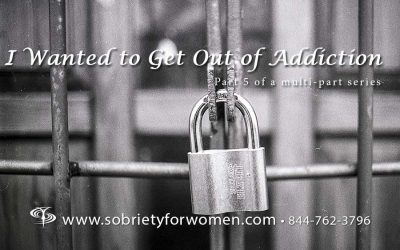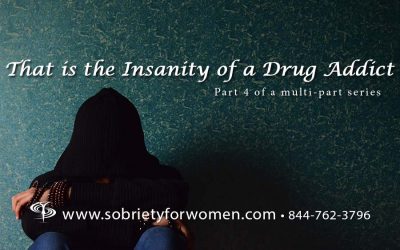Why Teens Get in Trouble with Drug Addiction in High School
Teenagers today face increasing pressure, from academics to peer expectations, and unfortunately, many end up in trouble with drug addiction during high school. This phase of life is a critical developmental period, making teens more vulnerable to experimenting with substances. What starts as curiosity or peer influence can quickly spiral into a serious addiction.
Understanding Why Teens Are Vulnerable
High school students are at a developmental stage where impulse control isn’t fully developed. Combined with easy access to substances and the desire to fit in, this creates a dangerous environment. Many teens begin using substances to cope with stress, emotional pain, or social anxiety — often unaware of the long-term consequences. This can lead to trouble with drug addiction that disrupts academics, family life, and health.
Common Substances Abused by Teens
Some of the most common drugs linked to teenage addiction trouble include:
-
Marijuana
-
Prescription drugs (like Adderall or Xanax)
-
Alcohol
-
Nicotine (including vaping products)
-
Cocaine or ecstasy at parties
What begins as recreational use can easily turn into drug addiction trouble when the teen becomes dependent on the substance to function or feel “normal.”
Warning Signs of Teen Drug Addiction Trouble
Parents and educators should watch for red flags that may suggest a teen is struggling:
-
Sudden drop in grades
-
Isolation or loss of interest in activities
-
Frequent illness or fatigue
-
Mood swings or irritability
-
Stealing or asking for money with no explanation
If your teen shows multiple signs, it’s important to intervene early before the trouble with drug addiction deepens.
The Consequences of Addiction in Adolescents
When teenagers face trouble due to drug addiction, the consequences can be long-lasting. These include:
-
Academic failure and dropping out of school
-
Criminal records that affect future opportunities
-
Mental health disorders such as depression or anxiety
-
Permanent damage to brain development
-
Strained family relationships
Prevention and Intervention
The best way to prevent trouble with drug addiction in teens is through education, open communication, and early intervention. Schools should include drug prevention programs, while parents must create a safe, judgment-free space to talk.
Professional help, such as counseling or teen addiction treatment programs, is often necessary to help a teen recover. The sooner the issue is addressed, the better the chances of long-term recovery.
Why is Cocaine so Addictive?
Warning Signs for Parents and Educators
Seeking Help and Breaking the Cycle
Recovery is possible. I eventually sought help through therapy and support programs—but only after a lot of damage was done. Early intervention could have changed everything. Education, open communication, and nonjudgmental support are key to helping teens make safer choices.
FAQ: Teen Drug Addiction and Early Substance Use
What does it mean when a teen is in trouble with drug addiction?
It means the teen’s substance use has escalated to a level where it negatively affects their behavior, academics, health, or relationships.
What are the most common drugs used by high school students?
Marijuana, alcohol, nicotine (vapes), prescription stimulants, and ecstasy are among the most commonly used substances. Cocaine and crack cocaine are also more accessible than many adults realize.
How can parents tell if their teen is addicted to drugs?
Look for signs like mood swings, poor academic performance, changes in friends, secretive behavior, or a sudden need for money. Physical signs include red eyes, poor hygiene, or unusual sleeping patterns.
Why do teens start using drugs?
Teens may use drugs due to peer pressure, curiosity, stress, trauma, or underlying mental health issues like anxiety or depression. Environmental exposure and family dynamics also play a role.
What should I do if I think my teen is using drugs?
Approach the situation calmly and with compassion. Open communication, seeking professional counseling, and involving a healthcare provider or addiction specialist are crucial first steps.
How early can addiction start?
Addiction can begin in the early teens, especially when drug use becomes regular. The adolescent brain is more susceptible to addiction due to its ongoing development.
How can schools help prevent teen drug use?
Implementing early prevention programs, providing mental health support, training staff to recognize warning signs, and fostering safe school environments all reduce the risk of substance use.
Is teen drug addiction treatable?
Yes. With early intervention, therapy, and support, many teens recover from drug addiction and rebuild healthy lives.
Key Features of Our Services

Discover Mental Health Programs

Discover Addiction Treatment Programs

Supportive Community

Discover Telehealth Programs
What Our Clients Say

“Thanks to their support, I found the strength to embrace sobriety and transform my life. Their guidance was a beacon of hope during my darkest days.”
Jessica L.

“Their holistic approach to mental health and wellness has been a game-changer for me. I feel more empowered and confident than ever before.”
Maria S.
Addiction Treatment Finder
Mental Health Treatment Finder
Telehealth Providers
Individual Therapy Providers
I Wanted to Get Out of Addiction
A Moment of Clarity One day it hit me that I did not want to do these pills anymore. I just wanted...
That is the Insanity of a Drug Addict
I “Was” a good kid Fast forward to court. I was a good kid with no criminal record. The judge told...
My Solution to Life
I Found HEAVEN in the Smoke of a Blue Pill Kate and I looked at each other and smiled, as we both...
Take the First Step Towards Empowerment
Join our community today to access personalized support and resources. Whether you’re seeking sobriety, mental health guidance, or wellness tips, we’re here to help you thrive.




